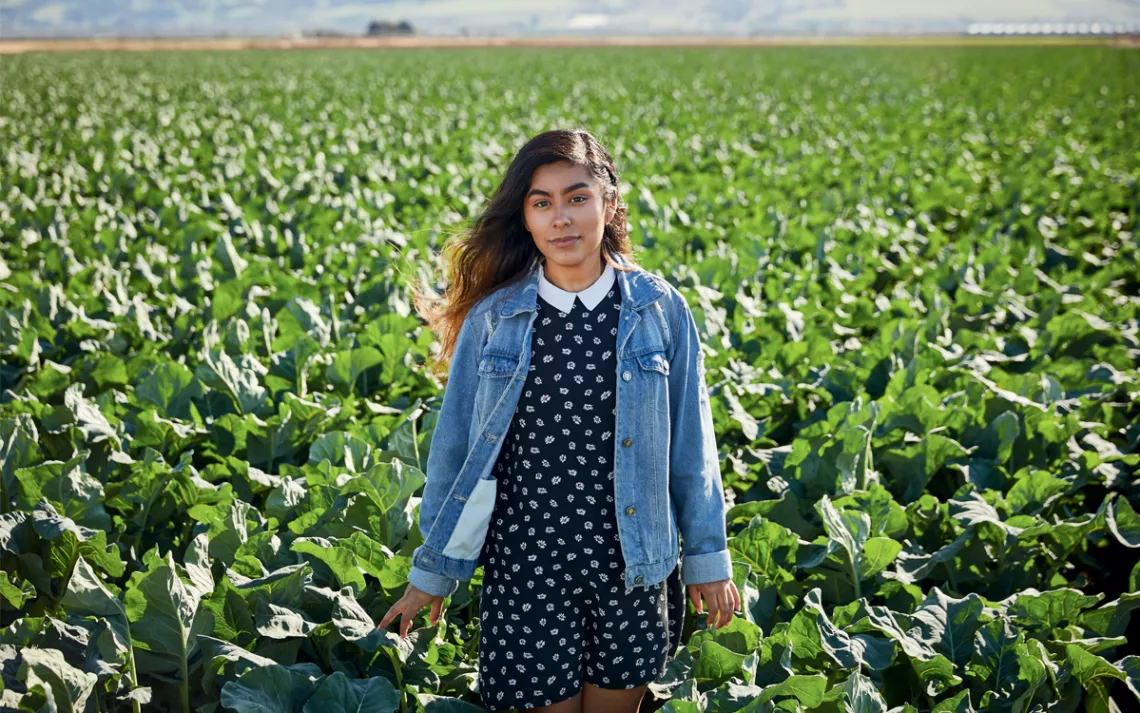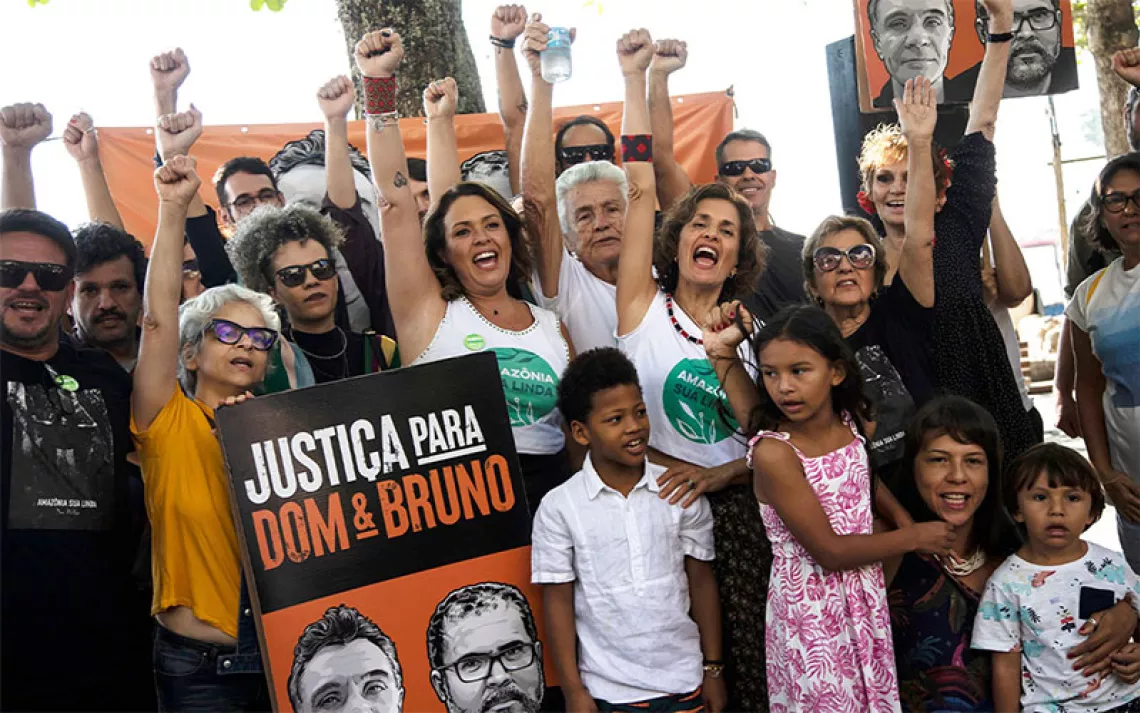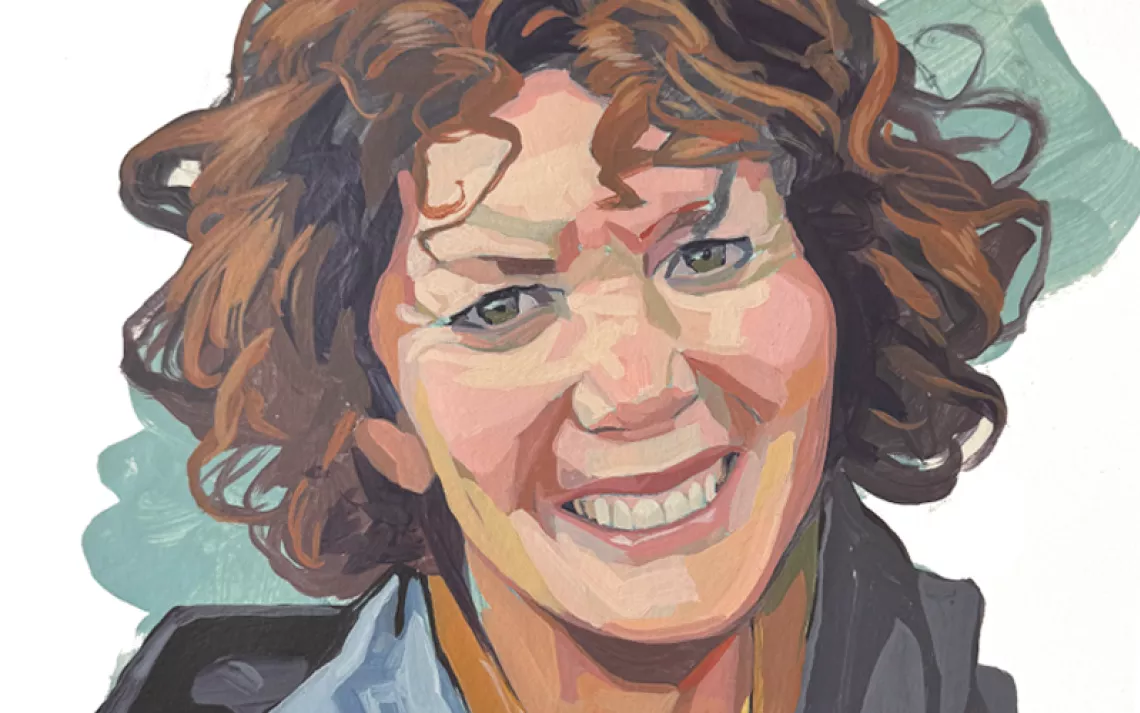Magaly Santos Speaks Up for Farmworkers
This bilingual teen wants to stop pesticide poisoning

Magaly Santos advocates for protection from pesticides in Gonzales, California. | Photo by Gabriela Hasbun
As a kid, Magaly Santos never thought much about the strange chemical odor that would sometimes drift through the windows of her house. She and her family lived just outside Gonzales, California, in a cluster of homes surrounded by fields of broccoli, asparagus, cauliflower, and celery. The smell made her head hurt—sometimes she could even taste it—but that was just a normal part of life in this rural town of mostly Latino farmworkers.
In summer 2018, the 14-year-old participated in a program called the Gonzales Environmental Justice Youth Leadership Academy, run by Greenaction for Health and Environmental Justice. Every Saturday for seven weeks, she and nine other teens learned about topics like pesticide drift and the symptoms of pesticide exposure. The experience was eye-opening. "By law, farm owners have to inform residents that live near the fields that they will be spraying days, or even weeks, before, and they never did that for us," Santos says.
After the program, the participants accompanied organizers to area farms to try to speak with farmers directly. Most farmers refused. For Santos, it was intimidating to approach the farm owners, who were white and English-speaking; it was also empowering. For the first time, she realized what a gift it was to be bilingual. "I live in this isolated community where not a lot of us speak English," Santos says. "But I can tell those farmers, 'Hey, you're doing something wrong, and you can't hide it.'"
The following summer, Santos returned to the Youth Academy to work with a new cohort of teens. She and other students launched a campaign to educate local residents about pesticide exposure, by knocking on doors, tabling at the local church, and phone banking. Many residents knew about the problem but were too afraid to speak up.
That August, the teens held an informational meeting for the community. The agriculture commissioner of Monterey County attended, and two representatives from the Department of Pesticide Regulation gave a presentation on how farmworkers could protect themselves from pesticides and report violations. "Having members of the government showed that there's no need to be afraid," Santos says.
Last fall, Santos took part in the Grassroots Accelerator for Women Environmental Leaders program, and this introduced her to a whole new world of activism. "I knew that pesticides affect people's health, and also the environment, but I didn't understand how this related to climate justice," she says. The training enabled Santos to design the curriculum for a third Youth Academy, which began in January. "Seeing how my community members feel when we encourage them to speak out, I feel a big sense of achievement and happiness," Santos says. "I like informing people and giving them what they need. I want to do that as a job."
This article has been updated since publication to include the full name of the Gonzales Environmental Justice Youth Leadership Academy and to correct Magaly Santos's age.
This article appeared in the July/August 2020 edition with the headline "Speaking Up for Farmworkers."
This article was funded by the Sierra Club’s Gender, Equity, and Environment program (sierraclub.org/gender).
Read about the Grassroots Accelerator for Women Environmental Leaders program at sc.org/gawel.
 The Magazine of The Sierra Club
The Magazine of The Sierra Club



